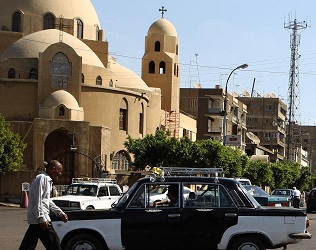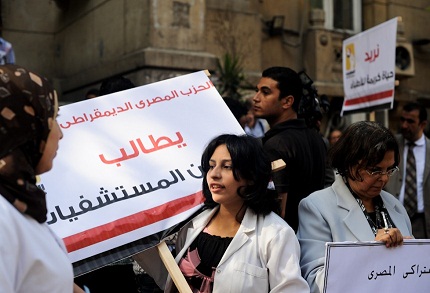The debate on the drafting of a law that would regulate the construction of churches has intensified since the end of last week, generating more negative responses by Egyptian churches, as opposed to the praise they had given to the government’s initial draft law at the beginning of August.
The church mainly objected to the interference of senior state bodies, namely security institutions, in approving or rejecting requests to build churches. However, it claimed that the measure seemed to be back on the table, which is where frustration comes from.
On Thursday, the Coptic Orthodox Church claimed that a meeting on Wednesday between representatives of the three major Egyptian churches with state officials was unsuccessful. “We were surprised to find out that the draft law has included new amendments, which we find unacceptable and a threat to national unity,” the church said in a statement.
The church said the law contained obstacles to the construction of churches that do not “take into consideration citizens’ rights”. Before the dispute, the church asserted that discussions with the government on the law resulted in changes that satisfied the church.
On the other hand, Minister of Legal and Parliamentary Affairs Magdy El-Agaty defended the project, saying it was discussed with church representatives for five months in addition to a six-hour meeting last Saturday. “I was surprised to find out that Pope Tawadros II did not approve of it,” El-Agaty told the local privately-owned newspaper Al-Masry Al-Youm in an interview published Tuesday.
He further criticised the church’s statement, stating: “it did not reflect the reality that, for the first time in history, we are aiming at providing stability to churches.” President Abdel Fattah Al-Sisi has urged the government to issue the new law, El-Agaty added.
The government’s draft law, as reported by church officials, contains an article stating that governors are in charge of looking into requests to construct churches, and that they should give their answer within four months, after examination and coordination with the “concerned bodies”—a vague term which allows for the interference of security bodies.
The Egyptian churches are holding urgent meetings to discuss the issue, after accusing the government of manipulating the draft law that was agreed upon between different parties. On Tuesday, the Cabinet asserted that it was “keen to issue the law as fast as possible”, state media reported.
“The government knows that the parliament is bound by a constitutional deadline to issue the law on the construction of churches. Therefore, the longer they delay the law, the less time the parliament has to discuss and amend it,” Coptic intellectual and activist Kamal Zakher said in comments to Daily News Egypt on Tuesday.
According to him, the issue dates back to restrictive measures implemented in 1934 by the Ministry of Interior since, in an attempt to obtain the sympathy of the Muslim Brotherhood.
“Today, the state follows the same practices without a logical perspective of the issue as related to constitutional obligations, as well as international protocols guaranteeing the freedom to practice religious rites,” he stated.
To Zakher, the more articles the law contains regulating the construction of churches, the more the complications and administrative interferences. His suggests a three-article law. First, the licensing of existing churches, second the submission of churches to general construction rules, and third the inclusion of churches in future urban planning.
Apart from the government’s draft law, there were other versions drafted by political parties and rights groups. The Free Egyptians Party (FEP) and Al-Wafd Party each submitted their proposals to the parliament.
Zakher was critical of the parliament’s choice to wait for the government’s draft law. “The constitution obliged the parliament, not the government, to issue a law. The parliament has two other laws submitted by political parties—which I find closest to the demands of the Christian community—but has not yet looked into them,” he said, highlighting a lack of political will to issue a law that protects Christians’ rights.


